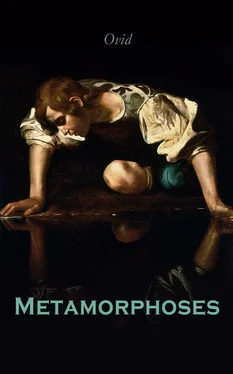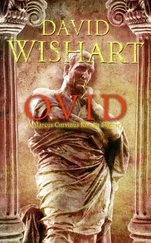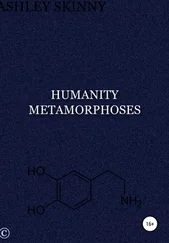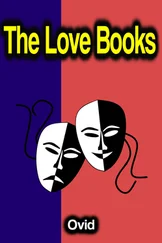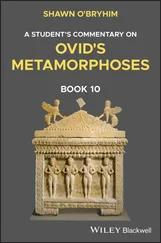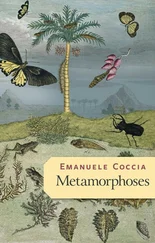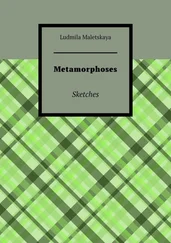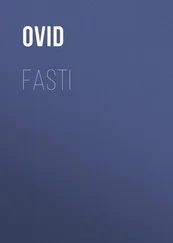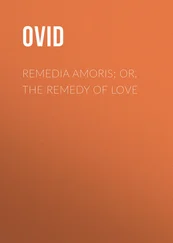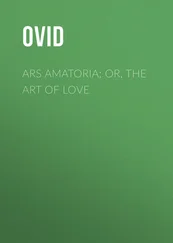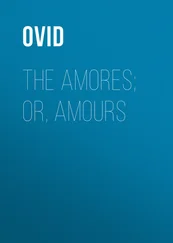Ovid - Metamorphoses
Здесь есть возможность читать онлайн «Ovid - Metamorphoses» — ознакомительный отрывок электронной книги совершенно бесплатно, а после прочтения отрывка купить полную версию. В некоторых случаях можно слушать аудио, скачать через торрент в формате fb2 и присутствует краткое содержание. Жанр: unrecognised, на английском языке. Описание произведения, (предисловие) а так же отзывы посетителей доступны на портале библиотеки ЛибКат.
- Название:Metamorphoses
- Автор:
- Жанр:
- Год:неизвестен
- ISBN:нет данных
- Рейтинг книги:3 / 5. Голосов: 1
-
Избранное:Добавить в избранное
- Отзывы:
-
Ваша оценка:
- 60
- 1
- 2
- 3
- 4
- 5
Metamorphoses: краткое содержание, описание и аннотация
Предлагаем к чтению аннотацию, описание, краткое содержание или предисловие (зависит от того, что написал сам автор книги «Metamorphoses»). Если вы не нашли необходимую информацию о книге — напишите в комментариях, мы постараемся отыскать её.
Metamorphoses — читать онлайн ознакомительный отрывок
Ниже представлен текст книги, разбитый по страницам. Система сохранения места последней прочитанной страницы, позволяет с удобством читать онлайн бесплатно книгу «Metamorphoses», без необходимости каждый раз заново искать на чём Вы остановились. Поставьте закладку, и сможете в любой момент перейти на страницу, на которой закончили чтение.
Интервал:
Закладка:
After she had entered there, she handed to one of the Nymphs, her armor-bearer, her javelin, her quiver, and her unstrung bow. Another Nymph put her arms under her mantle, when taken off: two removed the sandals from her feet. But Crocale, 19the daughter of Ismenus, more skilled than they, gathered her hair, which lay scattered over her neck, into a knot, although she herself was with her hair loose. Nephele, 20and Hyale, 21and Rhanis, 22fetch water, Psecas 23and Phyale 24 do the same , and pour it from their large urns. And while the Titanian Goddess was there bathing in the wonted stream, behold! the grandson of Cadmus, having deferred the remainder of his sport till next day , came into the grove, wandering through the unknown wood, with uncertain steps; thus did his fate direct him.
Soon as he entered the grotto, dropping with its springs, the Nymphs, naked as they were, on seeing a man, smote their breasts, and filled all the woods with sudden shrieks, and gathering round Diana, covered her with their bodies. Yet the Goddess herself was higher than they, and was taller than them all by the neck. The color that is wont to be in clouds, tinted by the rays of the sun when opposite, or that of the ruddy morning, was on the features of Diana, when seen without her garments. She, although surrounded with the crowd of her attendants, stood sideways, and turned her face back; and how did she wish that she had her arrows at hand; and so she took up water, 25which she did have at hand , and threw it over the face of the man, and sprinkling his hair with the avenging stream, she added these words, the presages of his future woe: “Now thou mayst tell, if tell thou canst, how that I was seen by thee without my garments.” Threatening no more, she places on his sprinkled head the horns of a lively stag; she adds length to his neck, and sharpens the tops of his ears; and she changes his hands into feet, and his arms into long legs, and covers his body with a spotted coat of hair; fear, too is added. The Autonoëian 26hero took to flight, and wondered that he was so swift in his speed; but when he beheld his own horns in the wonted stream, he was about to say, “Ah, wretched me!” when no voice followed. He groaned; that was all his voice, and his tears trickled down a face not his own, but that of a stag . His former understanding alone remained. What should he do? Should he return home, and to the royal abode? or should he lie hid in the woods? Fear hinders the one step , shame the other. While he was hesitating, the dogs espied him, and first Melampus, 27and the good-nosed Ichnobates gave the signal, in full cry. Ichnobates, 28was a Gnossian dog ; Melampus was of Spartan breed. Then the rest rush on, swifter than the rapid winds; Pamphagus, 29and Dorcæus, 30and Oribasus, 31all Arcadian dogs ; and able Nebrophonus, 32and with Lælaps, 33fierce Theron, 34and Pterelas, 35excelling in speed, Agre 36in her scent, and Hylæus, 37lately wounded by a fierce boar, and Nape, 38begotten by a wolf, and Pœmenis, 39that had tended cattle, and Harpyia, 40followed by her two whelps, and the Sicyonian Ladon, 41having a slender girth; Dromas, 42too, and Canace, 43Sticte, 44and Tigris, and Alce, 45and Leucon, 46with snow-white hair, and Asbolus, 47with black, and the able-bodied Lacon, 48and Aëllo, 49good at running, and Thoüs, 50and swift Lycisca, 51with her Cyprian brother, Harpalus, 52too, having his black face marked with white down the middle, and Melaneus, 53and Lachne, 54with a wire-haired body, and Labros, 55and Agriodos, 56bred of a Dictæan sire, but of a Laconian dam, and Hylactor, 57with his shrill note; and others which it were tedious to recount.
This pack, in eagerness for their prey, are borne over rocks and cliffs, and crags difficult of approach, where the path is steep, and where there is no road. He flies along the routes by which he has so often pursued; alas! he is now flying from his own servants. Fain would he have cried, “I am Actæon, recognize your own master.” Words are wanting to his wishes; the air resounds with their barking. Melanchætes 58was the first to make a wound on his back, Theridamas 59the next; Oresitrophus 60fastened upon his shoulder. These had gone out later, but their course was shortened by a near cut through the hill. While they hold their master, the rest of the pack come up, and fasten their teeth in his body. Now room is wanting for more wounds. He groans, and utters a noise, though not that of a man, still , such as a stag cannot make; and he fills the well-known mountains with dismal moans, and suppliant on his bended knees, and like one in entreaty, he turns round his silent looks as though they were his arms.
But his companions, in their ignorance, urge on the eager pack with their usual cries, and seek Actæon with their eyes; and cry out “Actæon” aloud, as though he were absent. At his name he turns his head, as they complain that he is not there, and in his indolence, is not enjoying a sight of the sport afforded them. He wished, indeed, he had been away, but there he was; and he wished to see, not to feel as well, the cruel feats of his own dogs. They gather round him on all sides, and burying their jaws in his body, tear their master in pieces under the form of an imaginary stag. And the rage of the quiver-bearing Diana is said not to have been satiated, until his life was ended by many a wound.
EXPLANATION.
If the maxim of Horace, ‘Nec Deus intersit, nisi dignus vindice nodus,’ had been a little more frequently observed by the ancient poets, their Deities would not have been so often placed in a degrading or disgusting light before posterity. There cannot be a better illustration of the truth of this than the present Fable, where Ovid represents the chaste and prudent Diana as revenging herself in a cruel and barbarous manner for the indiscretion, or rather misfortune, of an innocent young man.
Cicero mentions several Goddesses of the name of Diana. The first was the daughter of Jupiter and Proserpine; the second of Jupiter and Latona; and the third of Upis and Glauce. Strabo mentions another Diana, named Britomartis, the daughter of Eubalus. The worship, however, of Diana as the Goddess of the Moon, was, most probably, derived from Egypt, with the Isis of whom she is perhaps identical. The adventure narrated in this Fable is most probably to be attributed to Diana Britomartis, as Strabo tells us, that she was particularly fond of the chase. Pausanias, in his Attica, tells the story in much the same terms, but he adds, that on seeing Diana bathing, the novelty of the sight excited Actæon’s curiosity, and prompted him to approach nearer. To explain this fable, some authors suggest, that Actæon’s dogs becoming mad, devoured him; while others suppose, that having ruined himself by the expense of supporting a large pack of hounds, and a hunting establishment, it was reported that he had been devoured by his dogs. Diodorus Siculus, and Euripides, tell us, that Actæon showed contempt to Diana, and was about to eat of the sacrifice that had been offered to her; and of course, in such a case, punishment at the hands of the Goddess would be deemed a just retribution. Apollodorus says, that Actæon was brought up by Chiron, and that he was put to death on Mount Cithæron, for having seen Diana bathing; though, according to one ancient authority, he was punished for having made improper overtures to Semele. Apollodorus also says, that his dogs died of grief, on the loss of their master, and he has preserved some of their names.
FABLE IV.
Juno, incensed against Semele for her intrigue with Jupiter, takes the form of Beroë, the more easily to ensure her revenge. Having first infused in Semele suspicions of her lover, she then recommends her to adopt a certain method of proving his constancy. Semele, thus deceived, obtains a reluctant promise from Jupiter, to make his next visit to her in the splendor and majesty in which he usually approached his wife.
Читать дальшеИнтервал:
Закладка:
Похожие книги на «Metamorphoses»
Представляем Вашему вниманию похожие книги на «Metamorphoses» списком для выбора. Мы отобрали схожую по названию и смыслу литературу в надежде предоставить читателям больше вариантов отыскать новые, интересные, ещё непрочитанные произведения.
Обсуждение, отзывы о книге «Metamorphoses» и просто собственные мнения читателей. Оставьте ваши комментарии, напишите, что Вы думаете о произведении, его смысле или главных героях. Укажите что конкретно понравилось, а что нет, и почему Вы так считаете.
